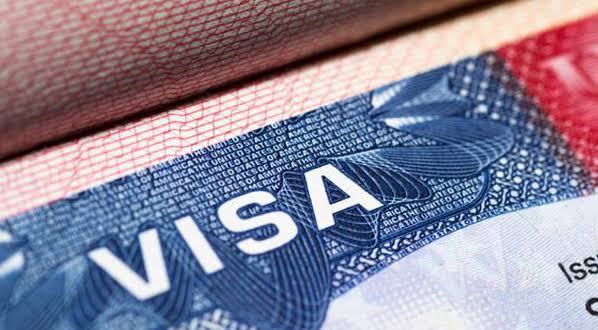By Peter Omopo
July 12, 2025 – Former Nigerian diplomats have expressed contrasting views on how the Federal Government should react to the recent United States decision to reduce visa validity for most Nigerian applicants from multiple years to single-entry, three-month visas.
The U.S. government announced the new visa policy on Wednesday, affecting non-immigrant categories such as B-1/B-2 (tourism/business), F (students), and J (exchange visitors). This change significantly reduces the validity period previously enjoyed by Nigerians, which ranged from two to five years with multiple entries.
According to the U.S. Embassy in Abuja, the policy revision is based on the principle of reciprocity, asserting that Nigerian visa conditions for U.S. citizens do not match those previously granted to Nigerians.
However, the Nigerian government has challenged that explanation. Presidential adviser Bayo Onanuga, in a statement on Thursday, described the reciprocity claim as “misinformation and fake news,” insisting that President Bola Tinubu never cancelled five-year multiple-entry visas for U.S. citizens.
“We want to reiterate that the U.S. government’s claim of reciprocity as the reason for its current visa policy towards Nigeria does not accurately reflect the actual situation,” Onanuga stated.
In response to the development, Nigeria’s Minister of Interior, Olubunmi Tunji-Ojo, led a delegation to meet with U.S. Ambassador Richard Mills in Abuja on Wednesday. Additionally, Minister of Foreign Affairs Yusuf Tuggar suggested that the visa restriction may be linked to Nigeria’s reluctance to accept Venezuelan deportees from the U.S.
He further claimed that the 10% tariff imposed on Nigeria by the U.S. under the Trump administration could have stemmed from the same issue, rather than Nigeria’s involvement with international blocs such as BRICS.
Despite the protests, the U.S. Embassy on Friday reaffirmed the new policy, denying that it was connected to third-country deportations, e-visa systems, or geopolitical affiliations. Instead, the embassy explained that the decision was part of a broader global review of visa regimes, based on technical and security benchmarks.
“The reduction in validity is part of an ongoing global review of the use of U.S. visas by other countries using technical and security benchmarks to safeguard U.S. immigration systems,” the embassy stated on its official Facebook page.
Amid the controversy, retired Nigerian diplomats have weighed in with divergent opinions.
One former envoy, who preferred anonymity, urged the Tinubu administration to adopt a cautious, diplomatic approach, stressing the importance of maintaining strong U.S.-Nigeria relations. “This issue can be resolved through mutual dialogue and adjustments,” he said.
However, another retired ambassador advocated a more assertive response. “Nigeria should consider implementing reciprocal measures. Diplomacy must be balanced, and we must protect the dignity of our citizens,” he told Saturday PUNCH.
Despite the tensions, the U.S. has reiterated its commitment to a strong bilateral relationship with Nigeria, expressing readiness to work with the government in meeting the benchmarks necessary for reconsideration of the visa regime.
“We remain committed to working closely with the Nigerian public and government officials to help them meet those criteria, thereby ensuring safe, lawful, and mutually beneficial travel between our nations,” the embassy said.

